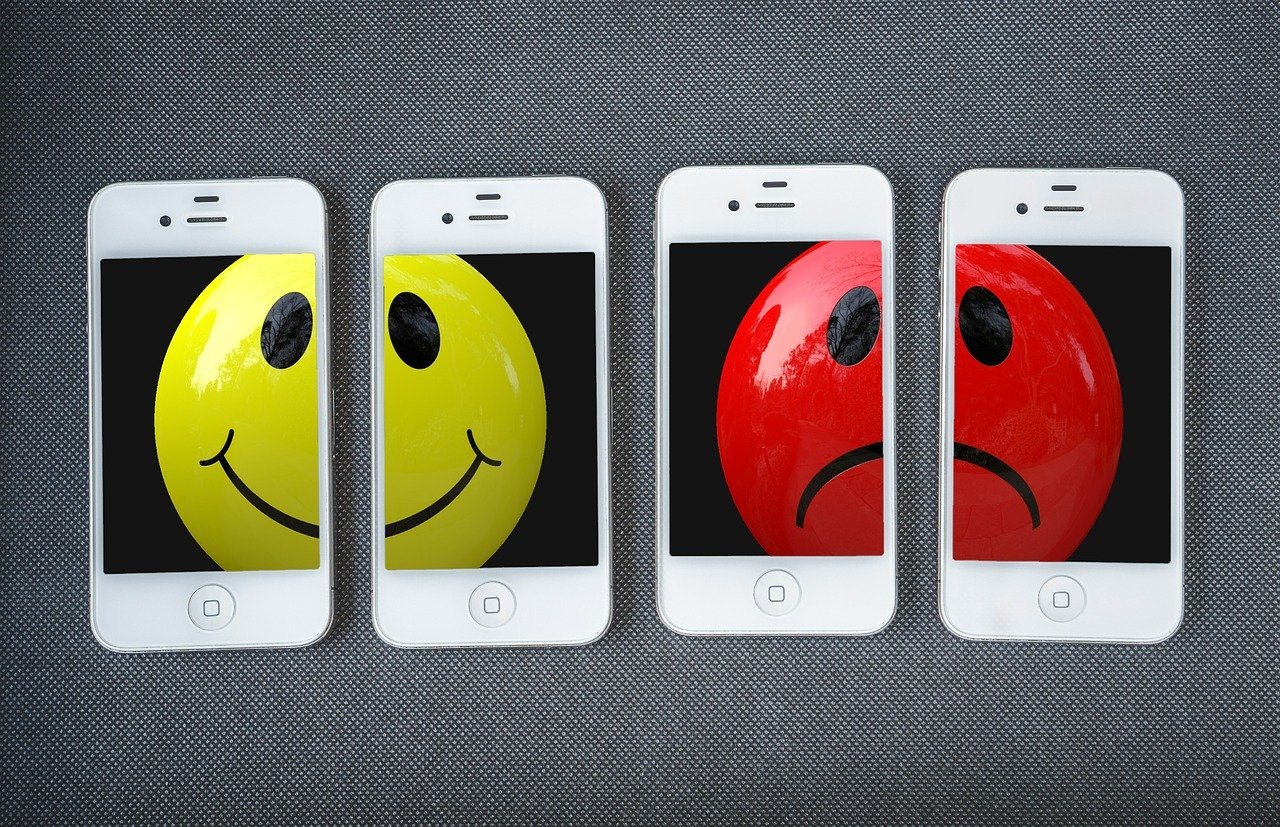How to Stop Comparing Yourself to Others
Most of us find ourselves trapped in the cycle of comparing our lives to others, often leading to feelings of inadequacy and frustration. In this post, I will share practical strategies that have worked for me in overcoming this habit, allowing you to focus on your unique journey instead. By implementing these tips, you can cultivate self-acceptance and build a more positive self-image. Let’s explore effective ways to break free from the comparison trap and embrace your individuality!
Key Takeaways:
- Focus on personal growth and set individual goals that reflect your values and aspirations.
- Limit exposure to social media and recognize its impact on self-perception and mental health.
- Practice gratitude by regularly reflecting on your accomplishments and the positive aspects of your life.
- Build a supportive social circle that encourages collaboration and self-acceptance rather than competition.
- Engage in activities that promote mindfulness and self-compassion, helping to shift focus inward.
The Psychological Traps of Self-Comparison
Self-comparison often ensnares us in psychological traps that distort our self-perception and sap our self-esteem. A tendency to measure personal success against the achievements of others can lead to feelings of inadequacy, particularly when we focus solely on the external markers of success—wealth, appearance, and recognition. These comparisons foster a fixed mindset, where I start to believe that personal growth is stagnant and dependent on others’ accomplishments. In my experience, this prevents me from celebrating my unique journey and acknowledging my own achievements, regardless of how they measure up to anyone else’s timeline.
Engaging in comparison can also inadvertently create resentment and jealousy. I find myself envious of a friend’s promotion or another colleague’s substantial following on social media, losing sight of the hard work they put into obtaining those things. As I let jealousy permeate my thoughts, it clouds my happiness and ability to appreciate my own life. This negative feedback loop not only amplifies our feelings of deficiency but also generates a toxic cycle where I constantly chase validation based on others’ standards. Breaking free from this cycle requires conscious effort, awareness, and a commitment to focus on my own path instead.
The Neuroscience of Envy and Comparison
The brain’s response to envy and comparison lies at the intersection of social cognition and emotional reaction. Studies reveal that the activation of certain areas of the brain, such as the anterior cingulate cortex and the insula, becomes pronounced when individuals experience envy. These patterns are often more intense in social settings, suggesting that our primitive instincts for social hierarchy remain deeply rooted. I’ve found that such mental processes can trigger a fight-or-flight response in my psyche, leading me to either strive for what someone else has or feel demoralized by my perceived lack. This mind set perpetuates negative self-talk, impacting my mental well-being significantly.
Additionally, the evolutionary aspect amplifies the implications of these feelings. Envy served a purpose for our ancestors, helping them navigate social structures and compete for scarce resources. In a modern context, this instinct can lead to self-destructive behaviors and unhealthy obsessions. For instance, when I dwell on the success of others, I amplify my internal dialogue of unworthiness, which not only causes stress and anxiety but also impairs my ability to recognize my own progress and achievements.
How Social Media Amplifies Insecurities
Social media plays a pivotal role in fueling insecurities through the constant barrage of curated lifestyles and achievements. Platforms like Instagram and Facebook present an edited version of reality, where I often find myself comparing not just my life but also my self-worth to snapshots of success that may be exaggerated or even misleading. The algorithm-driven feeds amplify the narrative that satisfaction comes from external validation, driving me to seek affirmation through likes and comments. This practice can create an endless cycle of comparison, where I measure my worth against the highlights of others, portraying a distorted reflection of what success truly means.
Scrolling through social media can often feel like a downhill spiral. Each post is a reminder of the milestones I may be missing or the perceived perfection I may never obtain. By merely engaging in this platform, I risk nurturing a fragile sense of self, influenced heavily by the curated and often unrealistic portrayals of others. The result is a growing disconnection between my authentic self and the images I consume online, distorting my worldview and eroding my confidence. Digital spaces are not just platforms—they can be a breeding ground for envy, driving home the importance of cultivating a healthy relationship with social media for my overall well-being.
Recognizing the Comparison Cycle
Understanding the comparison cycle requires a keen awareness of not just when it happens, but why it occurs. I often find myself spiraling into comparison mode without realizing that specific triggers are at play. By uncovering those triggers, I can better equip myself to handle each situation and minimize the impact of negative comparisons. This cycle can easily lead to self-defeating thoughts that perpetuate feelings of inadequacy, making it imperative to identify the different stages of this process.
| Stage of Comparison | Description |
| Trigger | Something occurs that prompts me to begin comparing myself to others, whether it’s social media updates or a casual conversation with friends. |
| Emotional Reaction | I often experience a rush of emotions, including jealousy, insecurity, or frustration, which can vary based on the context of the comparison. |
| Behavioral Response | In many cases, this emotional response leads to taking an action—be it scrolling more on social media or critiquing my self-worth based on achievements that I perceive others have. |
| Reflection | Finally, I take a step back (or at least aim to) and assess the impact of this comparison cycle on my mental health. |
Identifying Triggers That Spark Comparison
Each of us has different triggers that can spark that instant urge to compare ourselves to others. For instance, social media feeds showcasing others’ seemingly perfect lives can be a huge trigger for many. I often find that posts highlighting accomplishments, vacations, or milestones from friends or acquaintances stir up thoughts of inadequacy. Understanding these triggers allows me to approach them more mindfully, enabling me to detach from the need to compare.
| Common Triggers | Possible Responses |
| Social Media | Limit my time on these platforms or engage with content that inspires rather than diminishes me. |
| Conversations | Steer discussions towards topics that uplift rather than focus on achievements or material status. |
| Personal Milestones | Reflect on my own journey with compassion and focus on my progress instead of others’ timelines. |
The Emotional Rollercoaster: Recognizing Feelings
Coping with the emotional fallout of comparison is often a tumultuous journey. The feelings that arise, such as inferiority or frustration, can spiral quickly if not addressed. I tend to find that these emotions fluctuate wildly—one moment I’m motivated to improve myself, and the next, I feel deflated. This rollercoaster of emotions can detract from my overall happiness, making it crucial to recognize these feelings as they emerge.
Being conscious of my emotional state sets the groundwork for managing my reactions more effectively. By labeling my feelings, whether they are sadness or anger, I empower myself to process them instead of allowing them to dictate my mood. Tracking these feelings over time has illuminated patterns, leading me to realize that often, my emotional responses are less about the reality of my situation and more about the self-imposed standards I’ve set. I’ve learned to take a breath, step back, and ask myself whether these feelings are constructive or merely rooted in comparative thinking.
Shifting Your Focus: From Others to Self
Cultivating Self-Awareness and Reflection
Shifting your focus from others to yourself begins with cultivating self-awareness. I find that taking a step back to assess my thoughts, feelings, and actions allows me to pinpoint when I’m slipping into the comparison trap. Journaling serves as a useful tool in this respect, as it provides me with a space to articulate my inner dialogue. I’ll often set aside time each week to reflect on my feelings and any instances of self-comparison, examining my triggers and the emotional responses that follow. This process reveals patterns, and I discover that self-awareness is the first step toward empowerment.
Reflection can also take on various forms, from mindfulness meditation to simply sitting quietly with my thoughts. I consider how often I look at social media and how it influences my self-image. Through this practice, I can better understand my motivations and values, which allows me to redirect my attention from the lives of others to my own path. By acknowledging my strengths and areas for improvement, I carve out a clearer sense of identity that is less reliant on the achievements and lifestyles of those around me.
Practicing Gratitude and Celebrating Personal Achievements
Gratitude serves as a powerful antidote to comparison. When I consciously practice gratitude, whether through journaling or simple daily acknowledgments, I find myself appreciating my unique journey instead of focusing on what others have achieved. This habit shifts my mindset toward abundance, reminding me that I have my own set of experiences, skills, and milestones worth celebrating. Setting aside time each day to articulate what I’m thankful for helps cultivate an open heart and fosters a positive view of my life’s developments, big or small.
Celebrating personal achievements, no matter how small, deserves recognition. I make it a point to celebrate my wins, even if they seem minor in comparison to others. Did I finish a challenging project at work? I treat myself to a favorite snack or a leisurely walk in nature. These moments of self-recognition not only boost my morale but also reinforce the idea that my journey is valid and worthy of appreciation. Whether it’s personal growth, professional success, or simply finding joy in the everyday, acknowledging my progress builds a robust sense of self and lessens the urge to compare.
Building a Robust Mental Toolkit
Techniques to Combat Negative Thoughts
Negative thoughts can pop up unexpectedly, often fueled by lurking comparisons to others. To tackle these, I find it helpful to employ techniques that disrupt the cycle of negativity. One effective method is cognitive reframing, which involves identifying and challenging distorted perceptions. For instance, when I caught myself wanting to diminish my achievements after seeing a friend’s success, I took a moment to rewrite the narrative in my mind: “Their success doesn’t detract from my own journey.” This reframing allowed me to celebrate both my progress and theirs, rather than feeling envious.
Meditation and mindfulness practice serve as excellent tools for combating negativity. I make it a point to set aside a few minutes each day to mediate, focusing on my breath and observing my thoughts without judgment. This practice creates space to acknowledge negative thoughts as fleeting, rather than defining characteristics of my self-worth. By cultivating this awareness, I can navigate through the clutter of self-doubt more effectively. You might find journaling beneficial too; writing down your negative thoughts can provide clarity and help shift your perspective.
Developing a Growth Mindset for Personal Well-Being
A growth mindset significantly shifts the way I perceive challenges and setbacks. This mindset emphasizes the belief that abilities and intelligence can be developed through hard work and perseverance. Fostering a growth mindset encourages you to view failures not as reflections of your worth but as opportunities for learning and growth. When I began to embrace this concept, I noticed how it transformed my perspective—every setback became a lesson, a stepping stone towards my goals rather than a reason for self-criticism.
Transforming your mindset into one that embraces growth involves actively seeking out feedback and valuing the learning process over the end results. For example, after a less-than-ideal performance at work, I focus on what I’ve learned through the experience, dissecting the details instead of ruminating over perceived shortcomings. Engaging with challenges and viewing them as important to my development allows me to cultivate resilience, leading to enhanced well-being and satisfaction in my journey.
Embracing this mindset doesn’t happen overnight; it takes consistent practice and dedication. Over time, you’ll discover newfound enthusiasm for taking on challenges, as they will no longer feel overwhelming but rather as opportunities to expand your skill set and refine your goals. This mental shift can permeate all areas of life, fostering a healthier relationship with yourself and those around you.
Redefining Success on Your Terms
Setting Personal Goals That Matter to You
Defining what success means to you can drastically reshape how you approach your life. I found that setting personal goals tailored to my values, passions, and interests enabled me to create a roadmap uniquely suited for my journey. Rather than measuring myself against societal standards or peers, I started reflecting on what truly fulfills me. Maybe it’s pursuing a career that aligns with my talent for creativity or dedicating time to my health and well-being. Any goal that resonates with your core values can serve as a compass to guide your decisions and actions.
You’ll notice that personal goals often evolve as you grow. For instance, I initially thought achieving a specific job title defined my success. However, once I started incorporating aspects of work-life balance and emotional well-being into my objectives, my definition of success expanded, making me more content. Tailoring your benchmarks allows you to appreciate your progress more genuinely, rather than constantly pining for someone else’s aspirations.
Embracing Unique Journeys: Celebrating Differences
Each person’s path is inherently unique, driven by individual circumstances, experiences, and desires. Recognizing this diversity promotes an appreciation for our differences rather than envy or competition. When I shifted my gaze from external comparison to understanding the richness of varied journeys, I found a sense of community instead of isolation. We can inspire and support each other while forging our paths, rather than competing against one another.
Taking time to celebrate the unique qualities of those around you can have a profound effect on your own mindset. I often remind myself that someone else’s success doesn’t diminish my worth or potential. By viewing accomplishments as shared triumphs, I foster an atmosphere of collaboration over comparison, leading to more fulfilling relationships and a healthier self-image.
The act of embracing differences can manifest in practical ways, such as surrounding yourself with diverse voices or exploring various perspectives through literature, art, or dialogues. I encourage you to actively seek out stories of people navigating their unique journeys. This practice not only enriches your understanding but also allows you to see that success isn’t a one-size-fits-all concept. We all have distinct paths to tread, and that variability is something to celebrate, not to mourn. Each narrative adds beautiful layers to the human experience, allowing us to redefine what success looks like on our own terms.
Final Words
Ultimately, I believe that learning to stop comparing myself to others is a journey that requires consistent effort and introspection. I often find it helpful to remind myself that everyone’s path is different, and what works for others may not be suitable for me. By focusing on my personal goals and celebrating my unique qualities, I can cultivate a healthier mindset that appreciates my individuality rather than fixating on perceived shortcomings. Engaging with supportive communities and reading resources like Life’s Enough: Stop Comparing Yourself to Others has provided valuable insights in reshaping my perspective.
Taking the time to acknowledge my achievements, no matter how small, plays an crucial role in this process. I encourage you to reflect on what makes you unique and to prioritize self-compassion. In doing so, I create an environment where I can thrive, free from the constraints of comparison. Ultimately, by focusing on my journey and growth, I find fulfillment and happiness in my own skin, which is far more rewarding than trying to measure up to others.
FAQ
Q: Why do I compare myself to others?
A: Comparing yourself to others often stems from a natural instinct to evaluate where you stand in relation to your peers. It can be triggered by societal standards, social media exposure, or personal insecurities. This behavior can manifest when one sees aspects of their life, such as success, appearance, or achievements, reflected in others, leading to feelings of inadequacy and self-doubt.
Q: How can I shift my focus from others to myself?
A: To shift your focus, it can be helpful to engage in self-reflection. Start by identifying your strengths, goals, and accomplishments. Create a journal where you record your progress and celebrate your achievements, no matter how small. Learning to invest time in activities that enhance your skills and promote personal growth can also help redirect attention away from others and toward your own journey.
Q: How can I manage social media triggers that lead to comparisons?
A: Managing social media triggers can involve a few different strategies. First, consider curating your feed by unfollowing accounts that make you feel inadequate or foster negative feelings. Second, limit your time spent on social media, allowing yourself to engage more in real-life activities that promote positivity. Lastly, be conscious of what you consume on social media; seek out content that inspires and uplifts rather than compares.
Q: Is it normal to have setbacks in my journey to stop comparing myself to others?
A: Yes, experiencing setbacks is a normal part of the process. Personal growth is not linear, and there will be times when you might find yourself slipping back into comparison habits. It’s important to approach these moments with self-compassion. Recognizing and acknowledging these feelings without judgment can help you bounce back and continue your journey toward a healthier mindset.
Q: What are some healthy ways to build self-esteem without comparison?
A: Building self-esteem independently can involve setting personal goals that challenge you and accommodating your individual interests. Engage in activities or hobbies that you enjoy and excel at, fostering a sense of accomplishment. Seeking support from friends, family, or even professionals can provide affirmation and encouragement. Lastly, practicing mindfulness or self-compassion techniques can help cultivate a positive self-image and reduce the urge to compare.








